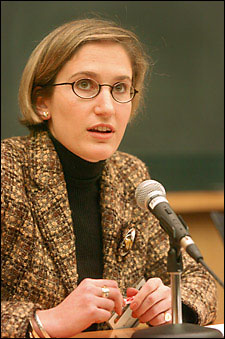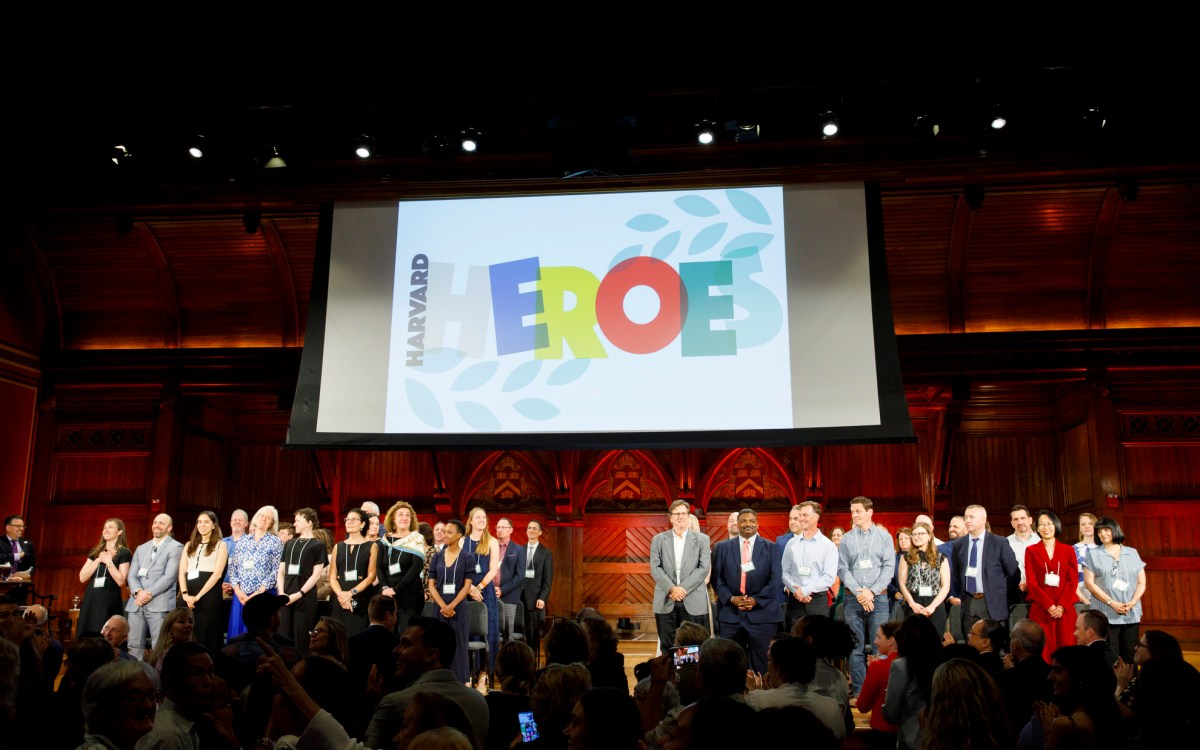Pakistan critical to South Asia stability
Asia Center hosts U.S.-Pakistan relations conference
A top Pakistani official gave voice to the frustration the South Asian nation feels in its relations with the United States Friday (Feb. 24), saying that though Pakistan has been a staunch U.S. ally, the United States ignores Pakistan until its interests force its attention there.
“The United States has only acted as a fire brigade: It puts out the fire and moves on,” said Mushahid Hussain Sayed, chairman of the Pakistani Senate’s Foreign Relations Committee.
Sayed decried the short attention span of U.S. diplomacy, saying that Pakistan was important to the United States when the Soviet army was in Afghanistan. With the withdrawal of the Soviets in the late 1980s, the United States ignored Pakistan until after the 9/11 bombings, when the nation rapidly rose on the U.S. foreign policy agenda.
Sayed was the keynote speaker for a daylong conference on Pakistan and the United States called “The Critical Engagement: Pakistan and U.S. Relations,” and held at the Center for Government and International Studies. Sponsored by the Asia Center, the conference also featured several panel discussions on strategic issues, reform, the economic outlook, and future engagement.
Also in this issue
Blackwill speaks of ‘natural allies’
Participants included several Harvard faculty members and officials from a variety of backgrounds. Among them were Mumtaz Zahra Baloch, first secretary of Pakistan’s U.S. embassy, Shanta Devarajan, chief economist for South Asia for the World Bank, Robin Raphel, former assistant secretary of state for South Asia, and Shahid Javed Burki, former World Bank vice president and Pakistan’s former finance minister.
Asia Center Director Anthony Saich, Daewoo Professor of International Affairs at the John F. Kennedy School of Government, said the conference is part of the center’s effort to raise the profile of South Asia at Harvard, which has traditional strengths in East Asia and, to a lesser extent, Southeast Asia.
Pakistan sees the United States as something of a “fair-weather friend,” Saich said, describing the relationship between the two nations as a turbulent one that shifts along with the changing perceptions of U.S. strategic interests.
Though the U.S. interest in Pakistan has shifted over time, Sayed said the two nations’ interests are strongly aligned today toward peace in the region, toward winning the fight against extremist terror, and toward greater economic growth and cooperation.
With President Bush scheduled to visit Pakistan and India in March, Sayed said the president should encourage a settlement of the Kashmir dispute between India and Pakistan and encourage a gathering movement for greater regional cooperation.
With U.S. interest in South Asia growing, Sayed said Pakistan’s central location between Iran, China, and the rest of South Asia increases its importance as an ally. Pakistan’s status as a friendly Muslim state also provides the United States with a doorway to the Muslim world as it continues to combat extremism and terror.

Pakistan’s ties to other nations in the region are steadily growing, with rail, bus, and energy pipeline connections to several nations.
“This regionalism in large measure is going to define relationships between countries, and is the main antidote toward extremism in the region,” Sayed said. “This regionalism needs to be encouraged by the U.S.”
Bush’s visit to the region is very important, Sayed said, and his decision to visit both Pakistan and India sends an important signal. When Jimmy Carter visited in 1978, Sayed said, he stopped in India and skipped Pakistan altogether. When Bill Clinton visited in 2000, he spent five days in India and five hours in Pakistan, Sayed said.
Greater regionalization in South Asia should be encouraged across ideological lines, Sayed said, and include Iran and China.
Sayed urged a push for a resolution to the dispute over Kashmir, which he said is ripe for a long-term solution but also vulnerable to a terrorist strike or other act that can set back Pakistani-Indian relations. The two nations have come a long way in just a few years from when their troops stood “eyeball to eyeball” across the Kashmir border. That situation, Sayed said, served as the South Asian version of the Cuban missile crisis, and caused both India and Pakistan to realize that the nuclear-armed rivals can’t afford to go to war.
India, he said, appears to be listening to the United States, so perhaps Bush can push it toward a negotiated solution.
Sayed urged the United States to lean more heavily on diplomatic rather than military solutions, saying the use of military might can be counterproductive, particularly in the war on terror.
“This could become an unwinnable war without end if we rely exclusively on the use of force. A yawning chasm, a gap, will develop between the U.S. and the Muslim world,” Sayed said.




